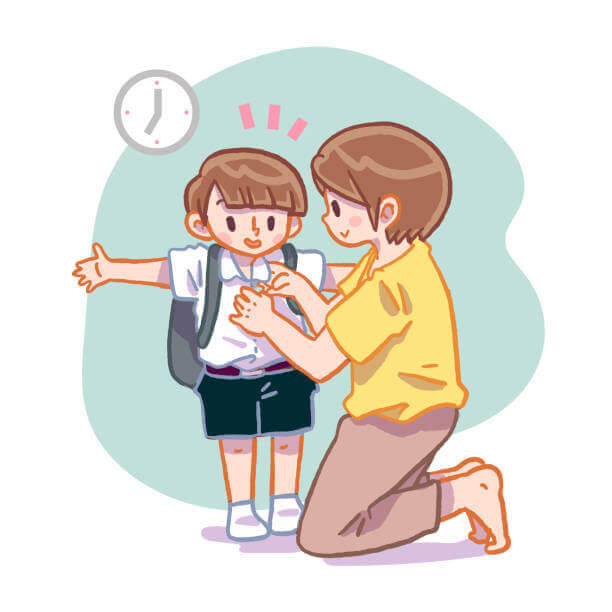
Button up, We have a long journey ahead
Growing up is not simply about getting bigger in size. Infants, children, teenagers, and young adults develop skills throughout their developmental stages to support their independence. These skills are known as “Daily Living Skills.” They encompass observable abilities related to our Activities of Daily Living. By acquiring skills such as buttoning a shirt or trousers, putting on shoes, or preparing toys and snacks for outdoor play, your child can thrive through daily activities and become more independent.
You might be wondering how you can assist your child in developing these skills. Before delving into that, let’s explore what influences our skills development and what aspects of “skills” we actually develop along the way.
Consider this question: How do we do it?
As human beings, we engage in thousands of activities throughout our day. Most of these tasks can be categorised into three main areas: Self-Care/Self-Maintenance, Productivity (School), and Leisure. By learning how to complete tasks independently, we fulfill our roles (as a student, soccer player, son/daughter, etc.) in different settings, shaping who we are along the way. Speaking of completing tasks, there are three primary sets of skills that enable us to function effectively in our daily lives: “Cognitive Skills,” “Motor Skills,” and “Sensory Processing Skills.”
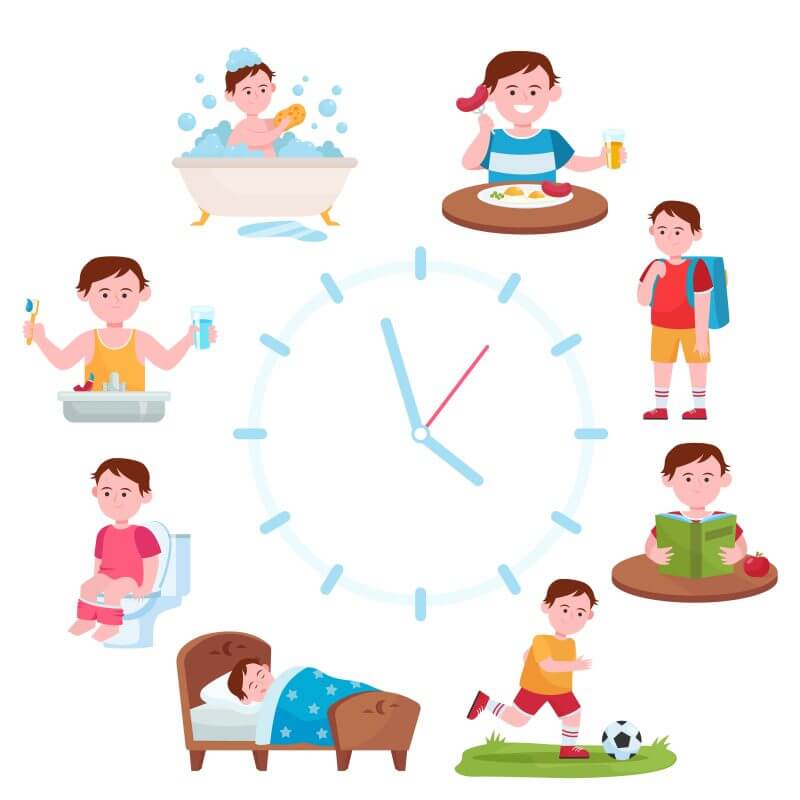
Examples of Activities of Daily Living
- Eating/Drinking
- Dressing
- Using the toilet
- Brushing teeth
- Preparing food
- Brushing hair
- Going to school
- Doing homework
- Coloring
- Reading
- Learning new skills
- Participating in sports
- Playing in the playground
- Playing games with friends
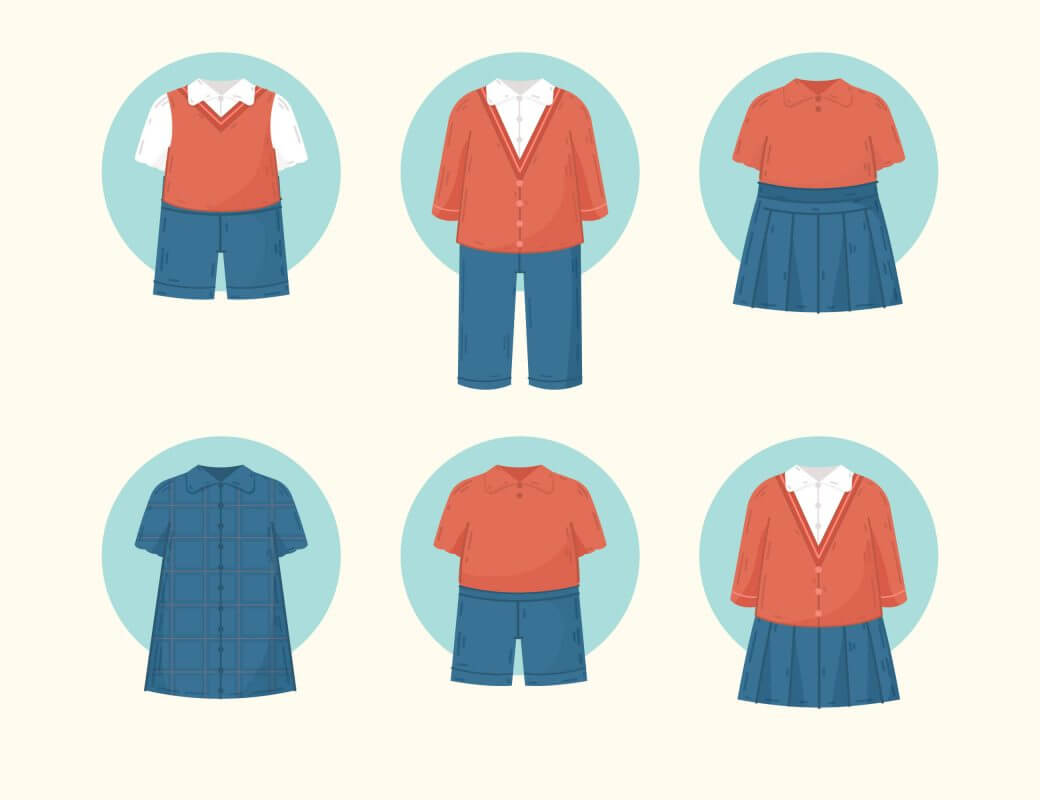
Let’s use buttoning clothes as an example. We learn how to button clothes by ourselves from a young age. It is an important self-care task because it allows us to wear clothes appropriate for various settings, such as school or a formal event.
To carry out this task, we need to combine different skills to perform the movement smoothly.
We gather the clothes we need to wear (e.g., a white shirt) from our wardrobe and sequence the steps required to button the shirt. We also consider how we will execute the task (e.g., put the clothes on, align the two sides, then start buttoning). Based on our experience, we devise a way to complete the task, such as buttoning from the bottom to the top to minimise the chance of mismatches between buttons and corresponding holes.
To execute the movement smoothly, we first visualise the task and understand how the action is done. We then formulate a plan following a sequence of steps (e.g., using the right fingers to hold the button and using our left finger to guide our hand through the buttonholes). Finally, we execute the plan, buttoning up with precision, and collect feedback through our senses to self-correct errors (e.g., addressing any instances of overshooting actions).
While carrying out the action, we collect information from our senses and continuously provide feedback to our brain. For instance, we use our sense of touch to align the buttonhole with the button. We may also use our sight to observe how we align the button through a mirror. This helps us further adapt to the task and learn.
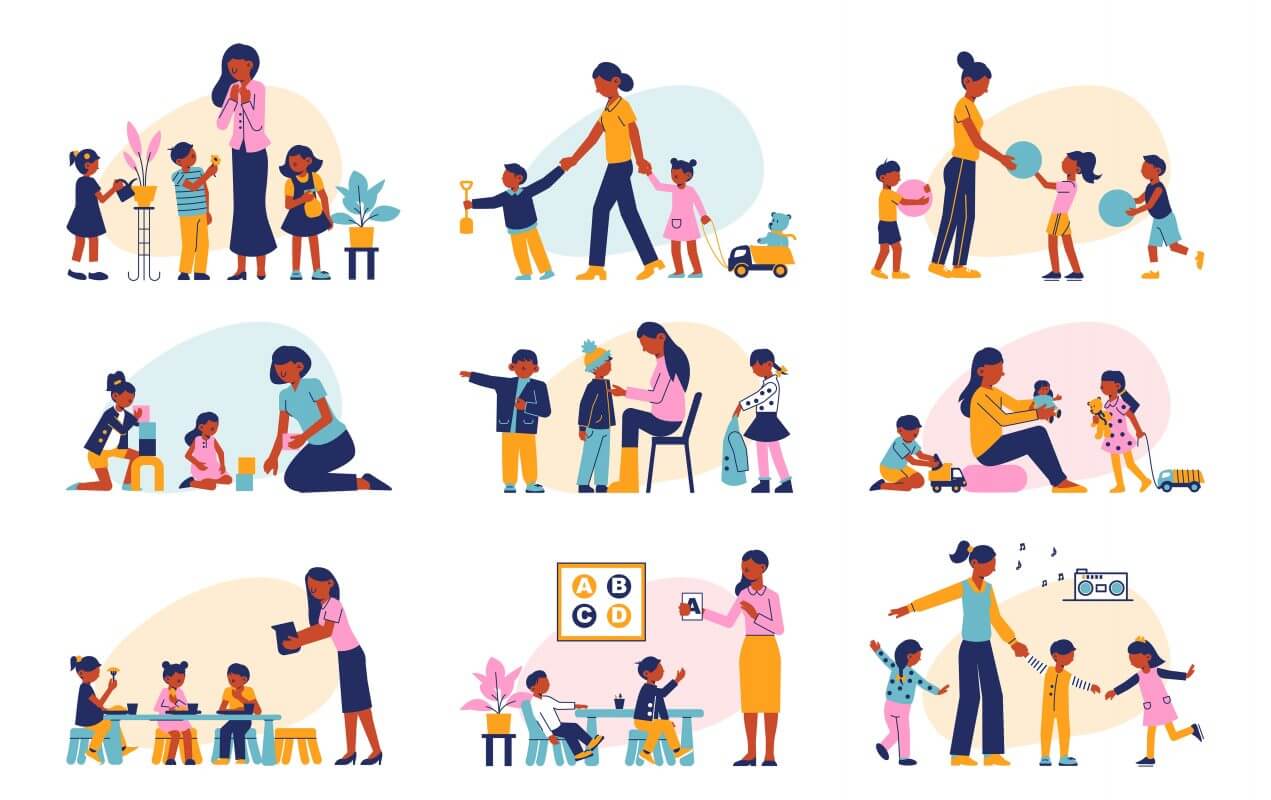
Mastering a task isn’t a simple feat, especially for your little one who is just beginning to grasp it. As the adults around them, we can provide a supportive environment to bolster their journey towards independence. Here are some tips for you:
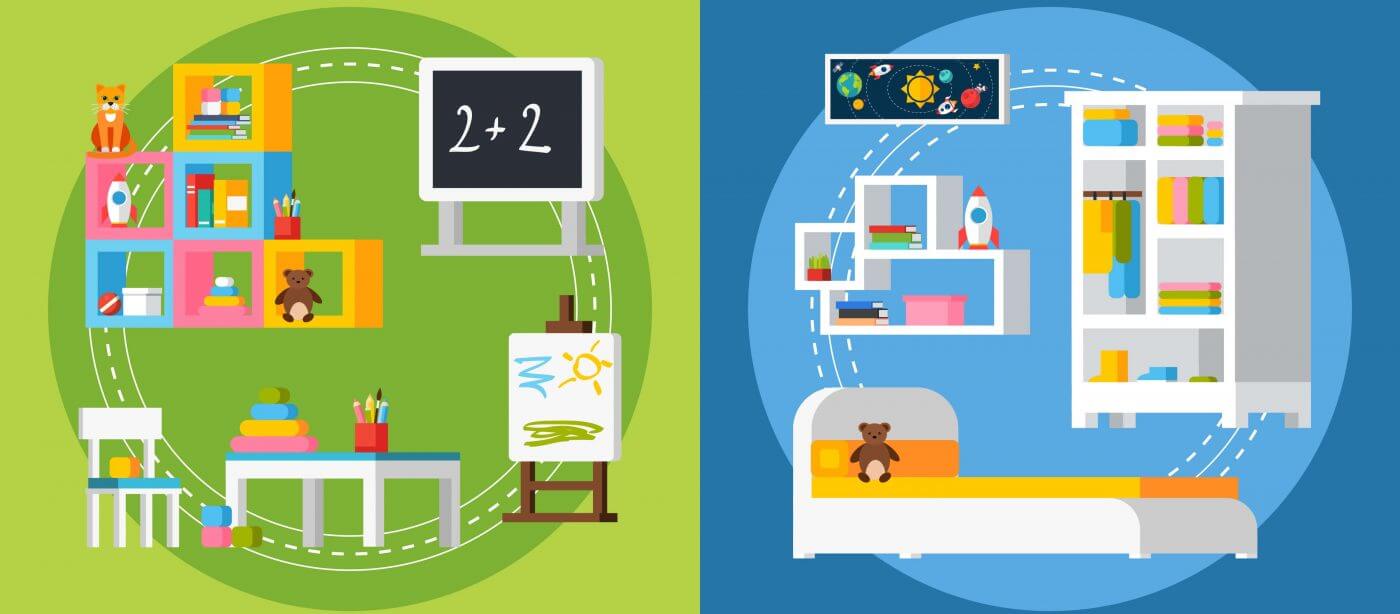
Create a Distraction-Free Environment
A calming environment with minimal distractions, such as noise or a busy crowd, gives your child space to think and learn while carrying out the task. This sets the stage for better skill acquisition.
Break a Big Task Down into Small Steps
Think about learning to drive. Most of us start with step-by-step guidance from an instructor, progressing from understanding the functions of each pedal to mastering turns and maneuvering roundabouts. Similarly, breaking down a task into manageable steps aids your little one in acquiring the skills needed for each stage. With your encouragement, your child will triumph in completing the task, gaining a strong sense of accomplishment. Remember, making mistakes is a vital part of the learning process, and skills acquired through practice and learning from mistakes are proven to be better retained than those learned through physical prompts.

Use Gentle Guidance and Prompts:
For younger children, visual and verbal prompts can be invaluable in reminding them of the steps needed to complete a task. You might have come across tools like visual schedules for children. These tools provide a clear sequence of the task steps, aiding children in navigating the task. Implementing a visual chart or schedule in your child’s room is a great starting point to build their independent dressing skills.
Incorporate Skill Practice into Daily Routines:
The best way for them to learn is by practicing skills in real-life situations. For example, practicing dressing and buttoning when it’s time for your child to get dressed (before school or heading out for a playdate) is highly beneficial. While practicing, try to minimise direct assistance. Encourage your child to explore and learn from the experience of completing the task. Different children come with different learning progress. Take getting dressed in the morning as an example. If your child finds it stressful, try practicing on a weekend to alleviate time pressure.

Celebrate Small Achievements:
Celebrate even the smallest achievements. It’s perfectly acceptable for children to seek assistance for some steps while completing the majority of the task themselves. Encourage family members to join in and support your children as they learn new skills.
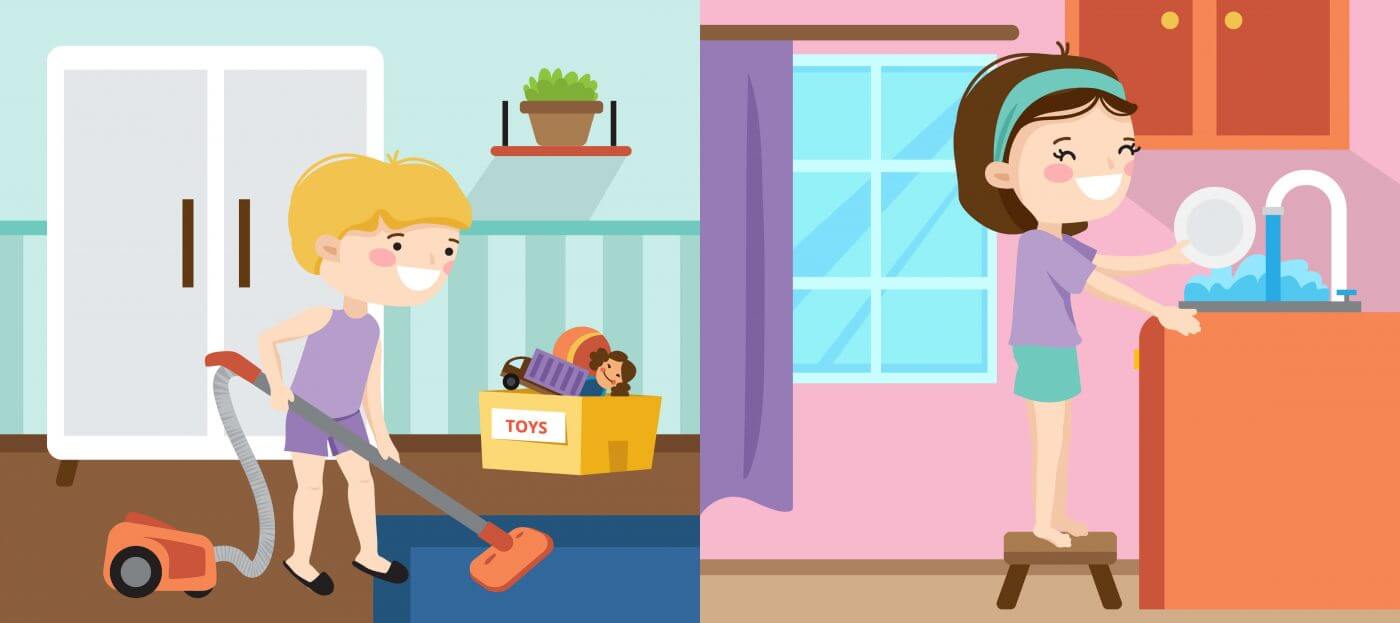
Start Them Young:
Skills acquired during one task CAN be transferred to others. This means the organisational skills your little ones develop while gathering clothes, underwear, socks, and trousers during dressing will also benefit them in learning how to pack their schoolbag. Allowing your child to practice these skills at a young age sets the stage for developing independence as they grow.
Addressing Challenges:
Research indicates that children not performing at an expected level may be experiencing challenges related to motor skills, cognitive skills, or sensory processing skills. If you have concerns about your child’s development, consulting your GP or a local Pediatric Occupational Therapist can provide valuable insights and suggestions.
Thank you for dedicating your time to reading this article.
Wishing you a enjoyable time in supporting your child or little clients as they develop valuable skills and independence. It’s a journey that may be lengthy, but one that promises rich rewards.
Stay tuned for more useful strategies and information coming your way!
Delgado‐Lobete, L., Montes‐Montes, R., Pértega‐Díaz, S., Santos‐Del‐Riego, S., Hartman, E., & Schoemaker, M. M. (2022). Motor performance and daily participation in children with and without probable developmental coordination disorder. Developmental Medicine & Child Neurology, 64(2), 220-227.
Dulce Romero-Ayuso, Álvaro Castillero-Perea, Pascual González, Elena Navarro, José Pascual Molina-Massó, M. Jesús Funes, Patrocinio Ariza-Vega, Abel Toledano-González & José Matías Triviño-Juárez (2021) Assessment of cognitive instrumental activities of daily living: a systematic review, Disability and Rehabilitation, 43:10, 1342-1358, DOI: 10.1080/09638288.2019.1665720
Irie, K., Mukaiyama, K., Yamashita, R., Zeidan, H., Bandara, A., Nagai-Tanima, M., & Aoyama, T. (2023). Investigating Subtypes of Motor Skills and Activities of Daily Living among Young Children with Motor Delay. Occupational Therapy International, 2023.
Katherine J Sullivan, Shailesh S Kantak, Patricia A Burtner, Motor Learning in Children: Feedback Effects on Skill Acquisition, Physical Therapy, Volume 88, Issue 6, 1 June 2008, Pages 720–732, https://doi.org/10.2522/ptj.20070196
Montes-Montes, R., Delgado-Lobete, L., & Rodríguez-Seoane, S. (2021). Developmental coordination disorder, motor performance, and daily participation in children with attention deficit and hyperactivity disorder. Children, 8(3), 187.
NCSE. (2020). Promoting Learning and Positive Behaviour at Home Life Skills for Children and Young People with Additional Needs. DOI: https://ncse.ie/wp-content/uploads/2020/05/05221-NCSE-Resource-6-Life-skills-Proof-03.pdf.
Takacs, Z. K., & Kassai, R. (2019). The efficacy of different interventions to foster children’s executive function skills: A series of meta-analyses. Psychological bulletin, 145(7), 653.
Tean, S. C. H. (2012). Assessment of activities of daily living in infants and children with developmental disabilities. The Singapore Family Physician, 16-20.
Van der Linde, B. W., van Netten, J. J., Otten, B., Postema, K., Geuze, R. H., & Schoemaker, M. M. (2015). Activities of daily living in children with developmental coordination disorder: performance, learning, and participation. Physical Therapy, 95(11), 1496-1506.
Yela-González, N., Santamaría-Vázquez, M., & Ortiz-Huerta, J. H. (2021). Activities of daily living, playfulness and sensory processing in children with autism spectrum disorder: A Spanish study. Children, 8(2), 61.
